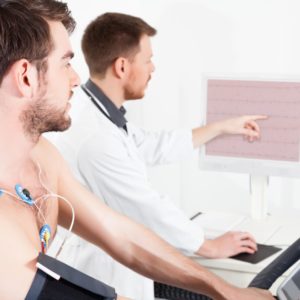What is a Holter monitor and how is it used?
 When cardiovascular issues occur, it is essential that patients in the Mesa, AZ community and beyond seek the assistance of a team of professionals who can offer diagnostic tools to find the source of the problem. At CVAM, our professionals have a wide range of diagnostic tools that are used in providing patients with the information they need to improve their cardiovascular health. One of the devices used in diagnosis of heart issues is that of the Holter monitor.
When cardiovascular issues occur, it is essential that patients in the Mesa, AZ community and beyond seek the assistance of a team of professionals who can offer diagnostic tools to find the source of the problem. At CVAM, our professionals have a wide range of diagnostic tools that are used in providing patients with the information they need to improve their cardiovascular health. One of the devices used in diagnosis of heart issues is that of the Holter monitor.
What is a Holter monitor?
The doctors at CVAM describe the Holter monitor as a wearable device that is used in tracking one’s heart rhythm. The device, which is small and hangs from the neck, may be worn for a day or two to record heartbeats to provide diagnostic information to the doctor. In most situations, the Holter monitor is used after the doctor has done an electrocardiogram that may not have provided enough information about the condition of a patient’s heart. Other Holter monitors are wireless and can work longer than traditional ones.
Why are Holter monitors used?
When patients are having cardiovascular issues including unexplained fainting or irregular heartbeats, it is important that a professional evaluate them to determine the source of the issue. If other diagnostic tools are inconclusive, the Holter monitor may be used as a non-invasive way to detect irregularities in the heart rhythm.
Are there any risks associated with wearing a Holter monitor?
At this time, there are no known significant risks involved in wearing the device with the exception of possible skin irritation and discomfort where electrodes are placed. That being said, patients should always take great care in not damaging the Holter monitor or getting the monitor wet. Patients should also avoid using certain products such as microwave ovens, magnets, and electric blankets while wearing their monitor, and should avoid metal detectors in public locations. This can interrupt the signal from the electrodes and provide incorrect results for the diagnosis of certain heart conditions.
Learn more about the diagnostic tools used at CVAM
Mesa, AZ patients who have cardiovascular concerns and are in need of diagnostic services, we welcome these individuals to contact our practice by calling (480) 641-5400 and visit us at 6116 East Arbor Avenue.
